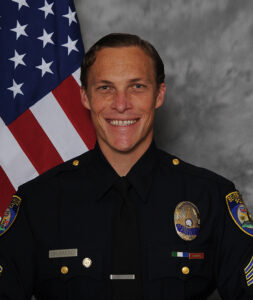The USC Safe Communities Institute announced today the roll-out of the Police Misconduct Registry (PMR), the first comprehensive national catalog of police officers who have been terminated or resigned due to misconduct.
Designed to hold police officers and departments accountable and increase public trust in law enforcement, the PMR is a trustworthy record of officer misconduct. The registry documents details such as excessive use of force, corruption, domestic violence, sexual assault, physical assault, harassment, perjury, hate group affiliation or falsifying a police report.
“A national police misconduct registry of abusive, violent and corrupt police officers is necessary to ensure transparency,” said U.S. Rep. Karen Bass (D-CA 37rd District). “This will hold officers accountable to the people they are supposed to serve and protect, as well as prevent bad officers from leaving one department and being hired in another.”
The registry will be searchable and open to the public. It is intended to be used by police departments as a component of applicant screening before hiring a police officer. In addition, the registry will be used for research into trends and patterns of police misconduct, leading to new solutions for reforming and improving law enforcement practices.
“I am a proud supporter of the PMR, a comprehensive national database providing immediate access to officer applicant screening to identify officers previously fired for misconduct,” said former California Gov. Arnold Schwarzenegger, who also serves as chairman of the Schwarzenegger Institute for State and Global Policy at USC Price. “Communities must have the best-qualified individuals protecting and serving in these most vital positions of public trust.”
The PMR has been in development for nearly a year with input and support from dozens of community stakeholders, law enforcement professionals, academia and legislators. Key partners to the PMR include Dr. Ben Graham and the Security and Political Economy Lab. All information in the registry is drawn from public sources, such as official department statements, court records and media reporting.
“I am proud to support this worthwhile effort,” said Art Acevedo, chief of police for the Miami Police Department and president of the Major Cities Chiefs Association. “A registry will help America’s peace officers build trust with the communities we serve and will instill confidence in our police services throughout our nation.”
The registry is currently being populated and beta-tested with all instances of police misconduct anywhere in the United States and will be fully operational by the end of the year.



